Introduction
Anxiety is a natural response to stress, characterized by feelings of worry, nervousness, or fear. It’s something everyone experiences at different times in their life. However, for some, anxiety becomes a persistent and overwhelming condition that can significantly impact their daily lives. Understanding anxiety, its impacts, and learning strategies to manage it can help improve the quality of life for those who struggle with it. This blog aims to provide an empathetic and understanding perspective on the impacts of anxiety and practical ways to reduce its symptoms.
The Impacts of Anxiety
Anxiety affects individuals in various ways, manifesting in physical, emotional, and behavioral symptoms that can profoundly influence one’s life.
Physical Impacts
The physical manifestations of anxiety can be distressing and often exacerbate the emotional turmoil one experiences. Common physical symptoms include:
- Increased Heart Rate and Palpitations: Anxiety often triggers the “fight or flight” response, leading to a rapid heart rate.
- Muscle Tension and Pain: Chronic anxiety can cause ongoing muscle tension, resulting in aches and pains.
- Headaches and Migraines: Stress and anxiety are common triggers for headaches and migraines.
- Fatigue: The constant state of alertness and worry can be exhausting, leading to chronic fatigue.
- Digestive Issues: Anxiety can cause stomach problems, including nausea, diarrhea, and irritable bowel syndrome (IBS).
Emotional Impacts
Emotionally, anxiety can be overwhelming and can lead to a range of negative feelings, including:
- Persistent Worry: Individuals with anxiety often experience excessive worry about everyday situations.
- Restlessness and Irritability: The inability to relax can result in feeling constantly on edge or irritable.
- Fear and Panic: Anxiety can lead to intense feelings of fear or panic attacks.
- Overwhelm: The constant worry and stress can make even small tasks feel insurmountable.
Behavioral Impacts
Anxiety can also influence behavior, often leading to patterns that can interfere with daily life:
- Avoidance: To prevent anxiety triggers, individuals might avoid certain situations or activities.
- Compulsive Behaviors: Some might develop compulsive behaviors to manage their anxiety, such as repetitive checking or reassurance-seeking.
- Difficulty Concentrating: Anxiety can make it hard to focus or concentrate on tasks.
- Social Withdrawal: Fear of judgment or negative outcomes can lead to withdrawal from social interactions.
Reducing Symptoms of Anxiety
Managing anxiety involves a combination of strategies that address both the mind and body. Here are several approaches that can help reduce the symptoms of anxiety:
1. Mindfulness and Meditation
Mindfulness and meditation practices help individuals focus on the present moment, reducing the tendency to dwell on worries about the past or future. Techniques include:
- Deep Breathing Exercises: Slow, deep breaths can calm the nervous system and reduce anxiety.
- Guided Meditation: Using apps or recordings to guide you through relaxation exercises can be beneficial.
- Mindfulness Practices: Engaging fully in the present moment, such as through mindful eating or walking, can decrease anxiety.
2. Regular Physical Activity
Exercise is a powerful tool for managing anxiety. Physical activity releases endorphins, which are natural mood lifters, and helps reduce the body’s stress hormones, like cortisol.
- Aerobic Exercise: Activities such as running, swimming, or dancing can be particularly effective.
- Yoga: Combines physical movement with mindfulness and deep breathing, making it an excellent choice for reducing anxiety.
- Routine Physical Activity: Incorporating regular walks, cycling, or any form of movement into your daily routine can help manage anxiety levels.
3. Healthy Diet
Nutrition plays a crucial role in mental health. Eating a balanced diet can support overall well-being and reduce anxiety symptoms.
- Reduce Caffeine and Sugar: High intake of caffeine and sugar can exacerbate anxiety symptoms.
- Eat Regular Meals: Skipping meals can lead to blood sugar dips, which can trigger anxiety.
- Incorporate Nutrient-Rich Foods: Foods rich in omega-3 fatty acids, magnesium, and vitamins B and D can support brain health.
4. Sleep Hygiene
Poor sleep can significantly affect anxiety levels. Improving sleep hygiene can help ensure a restful night’s sleep.
- Establish a Routine: Going to bed and waking up at the same time each day helps regulate the body’s internal clock.
- Create a Relaxing Environment: Ensure your bedroom is conducive to sleep—cool, dark, and quiet.
- Limit Screen Time Before Bed: The blue light emitted by phones and computers can interfere with the ability to fall asleep.
5. Cognitive-Behavioral Therapy (CBT)
CBT is a widely-used therapeutic approach for treating anxiety. It focuses on identifying and challenging negative thought patterns and behaviors.
- Identify Negative Thoughts: Recognizing and understanding the thoughts that contribute to anxiety.
- Challenge These Thoughts: Examining the evidence for and against these thoughts to create a more balanced perspective.
- Behavioral Strategies: Developing coping mechanisms and problem-solving skills to manage anxiety-inducing situations.
6. Support Networks
Having a strong support system can make a significant difference in managing anxiety.
- Talk to Friends and Family: Sharing your feelings with trusted individuals can provide relief and support.
- Join a Support Group: Connecting with others who experience similar struggles can reduce feelings of isolation.
- Seek Professional Help: Therapists and counselors can provide professional support and strategies for managing anxiety.
7. Relaxation Techniques
Incorporating relaxation techniques into daily life can help manage anxiety symptoms.
- Progressive Muscle Relaxation (PMR): Tensing and then slowly relaxing each muscle group in the body can reduce physical tension.
- Visualization: Imagining a peaceful scene or situation can help reduce anxiety.
- Aromatherapy: Using essential oils like lavender or chamomile can promote relaxation.
8. Limit Alcohol and Avoid Drugs
Substance use can exacerbate anxiety. Reducing alcohol intake and avoiding recreational drugs can help manage anxiety symptoms.
- Moderate Alcohol Consumption: Alcohol can initially reduce anxiety, but it often leads to increased anxiety levels afterward.
- Avoid Recreational Drugs: Drugs can interfere with mental health and exacerbate anxiety symptoms.
9. Practice Gratitude
Focusing on positive aspects of life can shift attention away from anxiety-provoking thoughts.
- Keep a Gratitude Journal: Writing down things you are grateful for each day can improve overall mood and reduce anxiety.
- Express Gratitude: Sharing your appreciation with others can enhance feelings of connection and well-being.
10. Set Realistic Goals
Setting achievable goals can provide a sense of control and accomplishment.
- Break Tasks into Smaller Steps: Large tasks can be overwhelming, so breaking them into smaller, manageable steps can help.
- Celebrate Achievements: Recognize and reward yourself for completing tasks, no matter how small.
Conclusion
Anxiety is a pervasive and challenging condition that affects many aspects of life. Understanding its impacts and learning ways to manage it can make a significant difference. By incorporating mindfulness practices, regular physical activity, healthy eating, proper sleep hygiene, cognitive-behavioral strategies, and building strong support networks, individuals can reduce their anxiety symptoms and improve their overall quality of life. Remember, managing anxiety is a journey, and seeking professional help is a valuable step in this process. Everyone’s path to managing anxiety is unique, and what works for one person might not work for another. It’s important to be patient and persistent in finding the strategies that best support your well-being.









